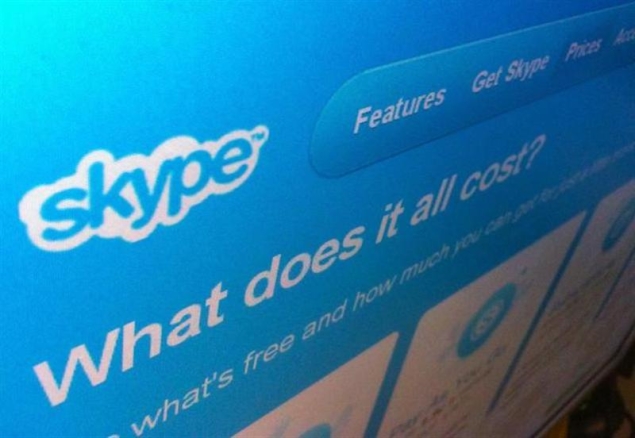- Home
- Internet
- Internet News
- Pakistan's Sindh province bans Skype, WhatsApp and Viber over security concerns
Pakistan's Sindh province bans Skype, WhatsApp and Viber over security concerns

Sindh's capital is Karachi, a city of 18 million people that is Pakistan's economic hub, and is plagued by Islamist militant and sectarian violence as well as kidnappings and contract killings.
Provincial Information Minister Sharjeel Memon did not spell out how closing down the networks would improve security. But security services say instant messaging and Internet telephony are used by militants and other armed groups to plan attacks.
It was also not clear if Pakistan's other three provinces would follow suit, or even if the ban could be practically enforced. Officials from the Pakistan Telecommunications Authority did not return calls requesting comment.
The decision was taken after a meeting attended by the Sindh chief minister and senior police and intelligence officials.
"We are imposing a ban on WhatsApp, Skype, Viber, Tango and other networks," Memon told a news conference. "The ban will remain in place for at least three months for security reasons."
Sana Saleem, a co-founder of Pakistani Internet advocacy group Bolo Bhi, said any move to stifle Skype would be illegal.
"This is just the government trying to show they are cracking down when they have failed to control law and order problems," she said. "Sadly they are doing that by taking away people's fundamental rights."
Karachi not only suffers from frequent Taliban and sectarian bombings but also mafia-like politicians who enjoy a stranglehold on the city's security services.
Police are poorly trained, poorly equipped and most are too low-ranking to fill in a basic crime report, according to a study last year by the Asia Society.
Pakistan has taken to clamping down on Internet freedoms of late. In September 2012, the Pakistani government blocked YouTube after an anti-Islamic video was posted online.
Since then, Pakistan has blocked liberal websites although has left militant sites untouched.
Islamabad recently signed a contract with Canadian company Netsweeper, according to Canadian research group CitizenLab, after advertising for a firm that would allow it to block 50 million websites at a time.
© Thomson Reuters 2013
Get your daily dose of tech news, reviews, and insights, in under 80 characters on Gadgets 360 Turbo. Connect with fellow tech lovers on our Forum. Follow us on X, Facebook, WhatsApp, Threads and Google News for instant updates. Catch all the action on our YouTube channel.
Related Stories
- Samsung Galaxy Unpacked 2026
- iPhone 17 Pro Max
- ChatGPT
- iOS 26
- Laptop Under 50000
- Smartwatch Under 10000
- Apple Vision Pro
- Oneplus 12
- OnePlus Nord CE 3 Lite 5G
- iPhone 13
- Xiaomi 14 Pro
- Oppo Find N3
- Tecno Spark Go (2023)
- Realme V30
- Best Phones Under 25000
- Samsung Galaxy S24 Series
- Cryptocurrency
- iQoo 12
- Samsung Galaxy S24 Ultra
- Giottus
- Samsung Galaxy Z Flip 5
- Apple 'Scary Fast'
- Housefull 5
- GoPro Hero 12 Black Review
- Invincible Season 2
- JioGlass
- HD Ready TV
- Latest Mobile Phones
- Compare Phones
- Tecno Pova Curve 2 5G
- Lava Yuva Star 3
- Honor X6d
- OPPO K14x 5G
- Samsung Galaxy F70e 5G
- iQOO 15 Ultra
- OPPO A6v 5G
- OPPO A6i+ 5G
- Asus Vivobook 16 (M1605NAQ)
- Asus Vivobook 15 (2026)
- Brave Ark 2-in-1
- Black Shark Gaming Tablet
- boAt Chrome Iris
- HMD Watch P1
- Haier H5E Series
- Acerpure Nitro Z Series 100-inch QLED TV
- Asus ROG Ally
- Nintendo Switch Lite
- Haier 1.6 Ton 5 Star Inverter Split AC (HSU19G-MZAID5BN-INV)
- Haier 1.6 Ton 5 Star Inverter Split AC (HSU19G-MZAIM5BN-INV)






![[Partner Content] OPPO Reno15 Series: AI Portrait Camera, Popout and First Compact Reno](https://www.gadgets360.com/static/mobile/images/spacer.png)









